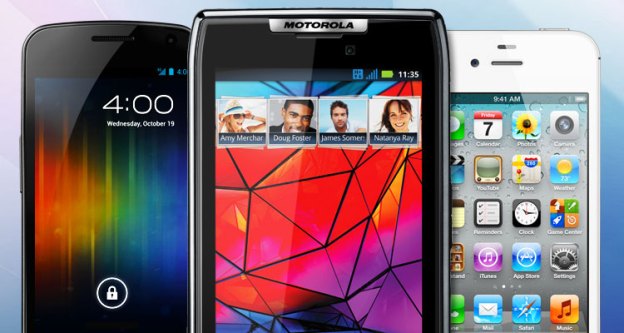
Today, Nokia unveiled its first Windows Phone 7.5 handsets: the Lumia 800 and Lumia 710. They look fantastic, and Nokia has a consistent marketing and advertising plan, but there’s one problem: Neither of them will be coming to the United States this year. They’re launching all over Europe and Asia, but not here. The reason boils down to how much control wireless carriers exert in the U.S., but no matter the politics of it, Nokia’s failure to secure placement spells out the future of Windows Phone in holiday 2011: not good.
Despite the fact that Windows Phone 7.5 is pretty great, Microsoft’s platform has a lot of problems. It’s possible that 2012 will mark a massive resurgence for Windows Phone, but this year is a goner. Here are a few reasons why.
No flagship handsets
Since Microsoft launched Windows Phone a year ago, one thing the platform has really lacked is a flagship device, or a handset that will drive consumer interest toward the platform. There are plenty of Windows Phone 7 handsets, but none of them have garnered much attention. No company has really made the WP7 platform a strategic focus like so many companies have done with Android. The first year of Windows Phones has been marked by decent, but uninteresting devices and a lack of momentum. Where are the Windows Phones that try to compete with Android on specs and features? Where is the Windows Phone that tries to go toe-to-toe with the iPhone? Where is a Windows Phone that has tried to do anything but sit quietly behind a window? Nokia is the first manufacturer to put real energy into the WP7 platform. Its Lumia 800 has some great exclusive apps like turn-by-turn navigation and defining features like NFC integration, but it wasn’t able to get a U.S. release this year. Why? Well, read on.

No dual-core or LTE support
A year ago, Microsoft’s first batch of Windows Phones were powerful, and competed with Android devices on specs. They all had 1GHz processors and touchscreens, among other things. Unfortunately, a year has changed a lot. The first dual-core
Unlike Android, Microsoft controls the hardware specs of its devices, and it hasn’t been keeping up with trends. Microsoft claims that it’s waiting to make sure it gets the technologies right and delivers on battery life and performance, but while it’s quietly whittling away at these technologies,
When you’re fourth place in a marketplace of four smartphone operating systems, you can’t afford to sit on your hands. Microsoft claims it is setting itself up to “leap frog” the competition. While I hope it’s right, how long will it be before Android leapfrogs right back? Redmond needs to pick up the pace.
No carrier support

There is no choice in the Windows Phone ecosystem right now, and the choice that exists is minimal. I don’t think Microsoft needs to let handset manufacturers run hog wild with Windows Phone like they do with Android, but they need the ability to compete and keep up with
Pray for 2012
Windows Phone is an awesome OS and if I find a way to get a hold of a Nokia Lumia 800, it may be my next phone. But my contract is up, as are millions of others who will be picking phones this holiday season. Google’s ecosystem has pumped out several great choices for top handsets like the Galaxy S II, HTC Amaze 4G, Droid Razr, Atrix II, and Galaxy Nexus. Windows Phone has the HTC Radar 4G on T-Mobile and maybe two or three more stragglers coming to AT&T. That’s it. I’m finding it hard to believe Microsoft when it says WP7 is going to have a good holiday season. I don’t see how it can without a slate of solid new handset. When are the Samsung Focus Flash, Samsung Focus S, and HTC Titan coming out? And if all three of those handsets are destined for AT&T, where does that leave users on Sprint and Verizon?
2012 could be a great year for Windows Phone: Windows 8 is set to be released, the Xbox 360 is getting a Live Tile makeover, and Nokia claims it has more tricks up its sleeve. But without new phones and competitive features this holiday, Windows Phone will continue to languish. At this point, Microsoft is going to have to put some energy into its ecosystem or Windows Phone may not be a factor at all this time next year.


